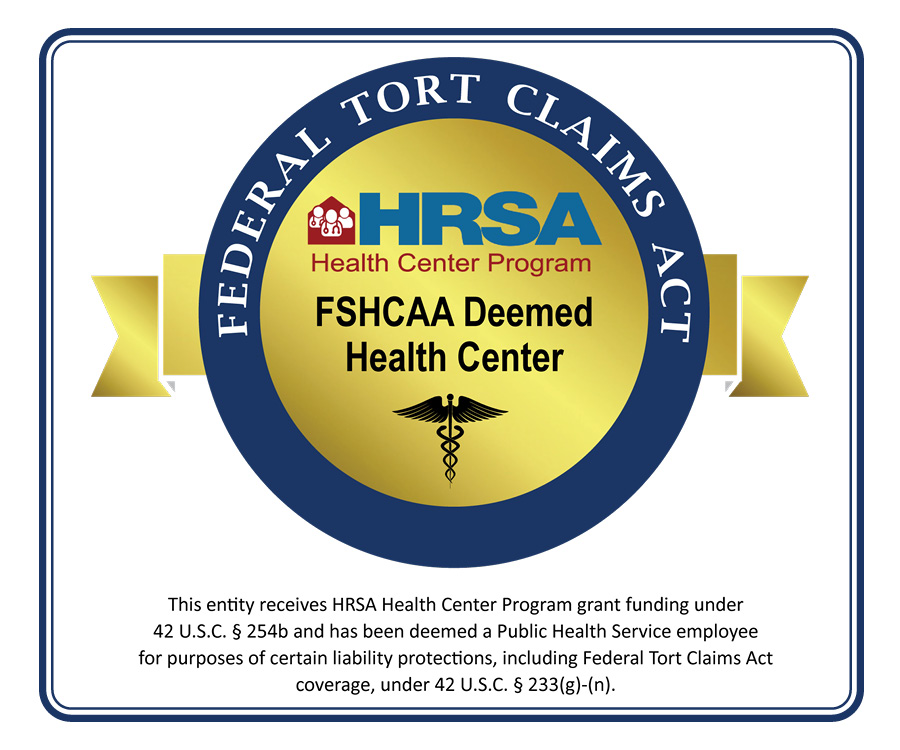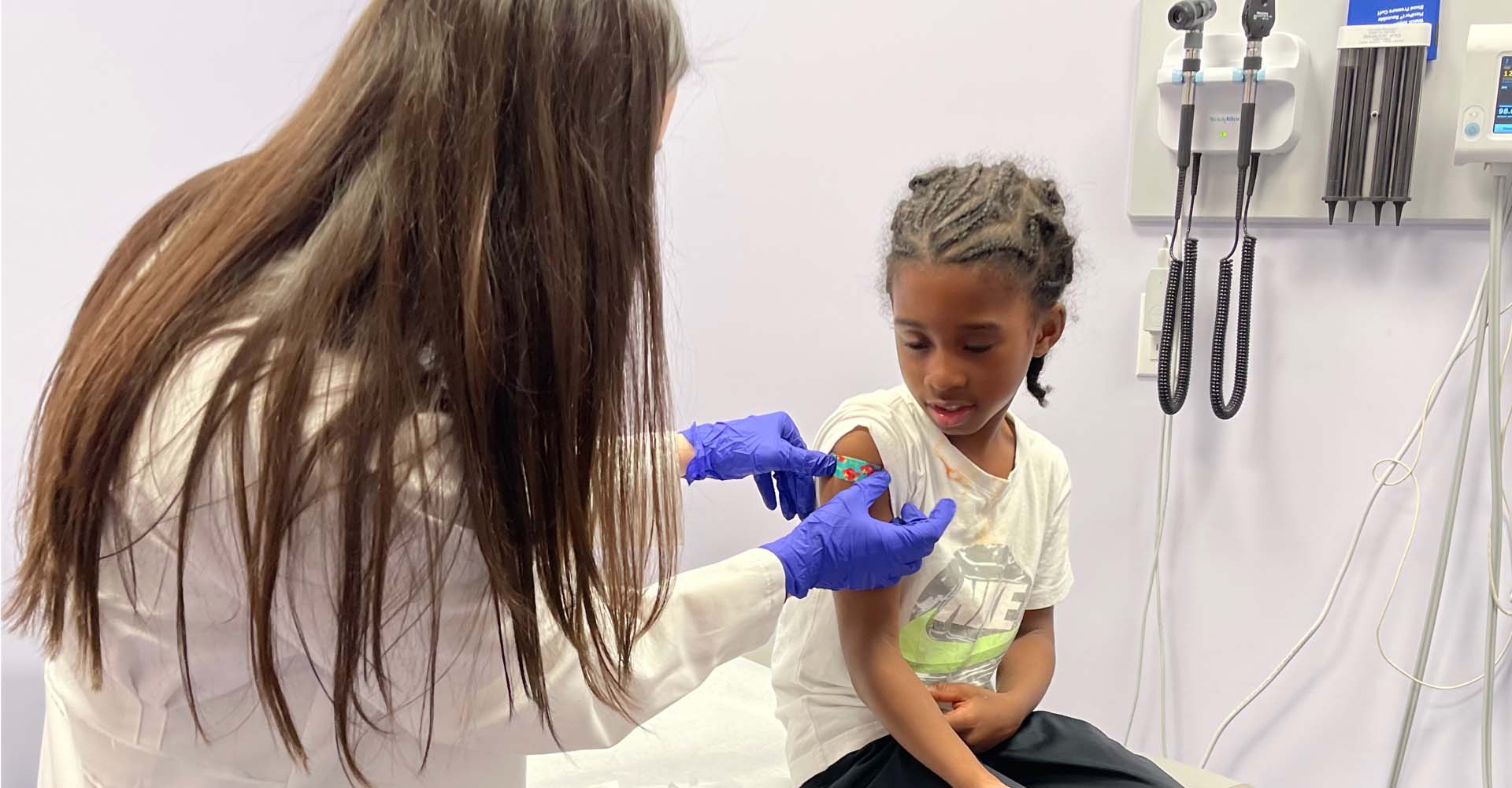
Shortening the path to school attendance for migrant children
Since its inception in 1866, at the height of a historic wave of immigration, The Floating Hospital has been on the cutting edge of providing patients with essential medicines as fast as they could be invented—aspirin, penicillin and vaccines. Now, nearly 16 decades later, the organization has come full circle in a newly funded effort to provide vaccines for the hundreds of migrant children arriving in another historic influx to New York City.
As is the case with all other 49 states, New York requires schoolchildren to be inoculated against measles, mumps, rubella, polio; highly contagious viruses such as Covid-19, influenza and chickenpox, and other transmissible diseases. And for the newly arrived, most of whom are coming from Central and South America—at least 50% without vaccines or vaccination records, estimated by the city health commissioner—that means no shots, no school.
More than 60,000 migrants and asylum seekers have come to New York City in the past year, straining the city’s shelter and public-hospital systems, which inevitably trickles down to the non-profit community health centers such as The Floating Hospital, a contracted provider of health screenings for the Department of Homeless Services. At The Floating Hospital, the number of uninsured new arrivals has increased from 21 to 31% of patient capacity in a six-month period.
“We knew this was going to put pressure on the system,” says Linda You, FNP-C and clinical projects manager at The Floating Hospital. “Schools require children to be vaccinated, but they weren’t prepared for the volume of migrant kids that were supposed to be in school.” In April, city officials estimated 14,000 migrant children have enrolled in public schools. That number is expected to increase again after the summer break.
The danger of a transient, unvaccinated population is very real: Not only has the city health commissioner specifically warned that half of the new arrivals have not been vaccinated against the contagious and life-threatening poliovirus, many have passed through countries with high rates of infectious tuberculosis. Some city shelters and public schools have reported outbreaks of chickenpox.
“That was new for us,” says You. “Up until that point, I hadn’t had any experience with patients infected with chickenpox. Ever.”
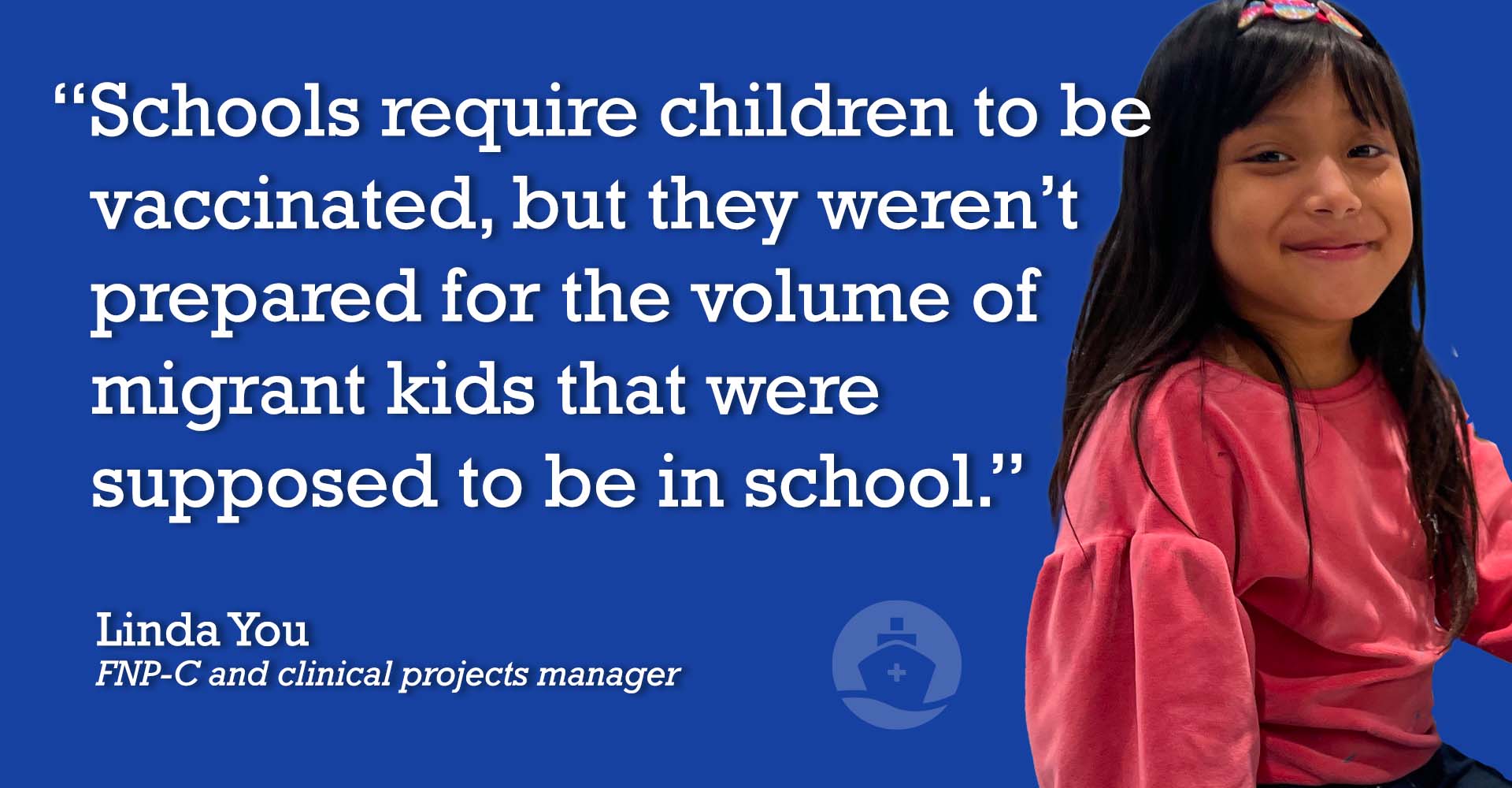
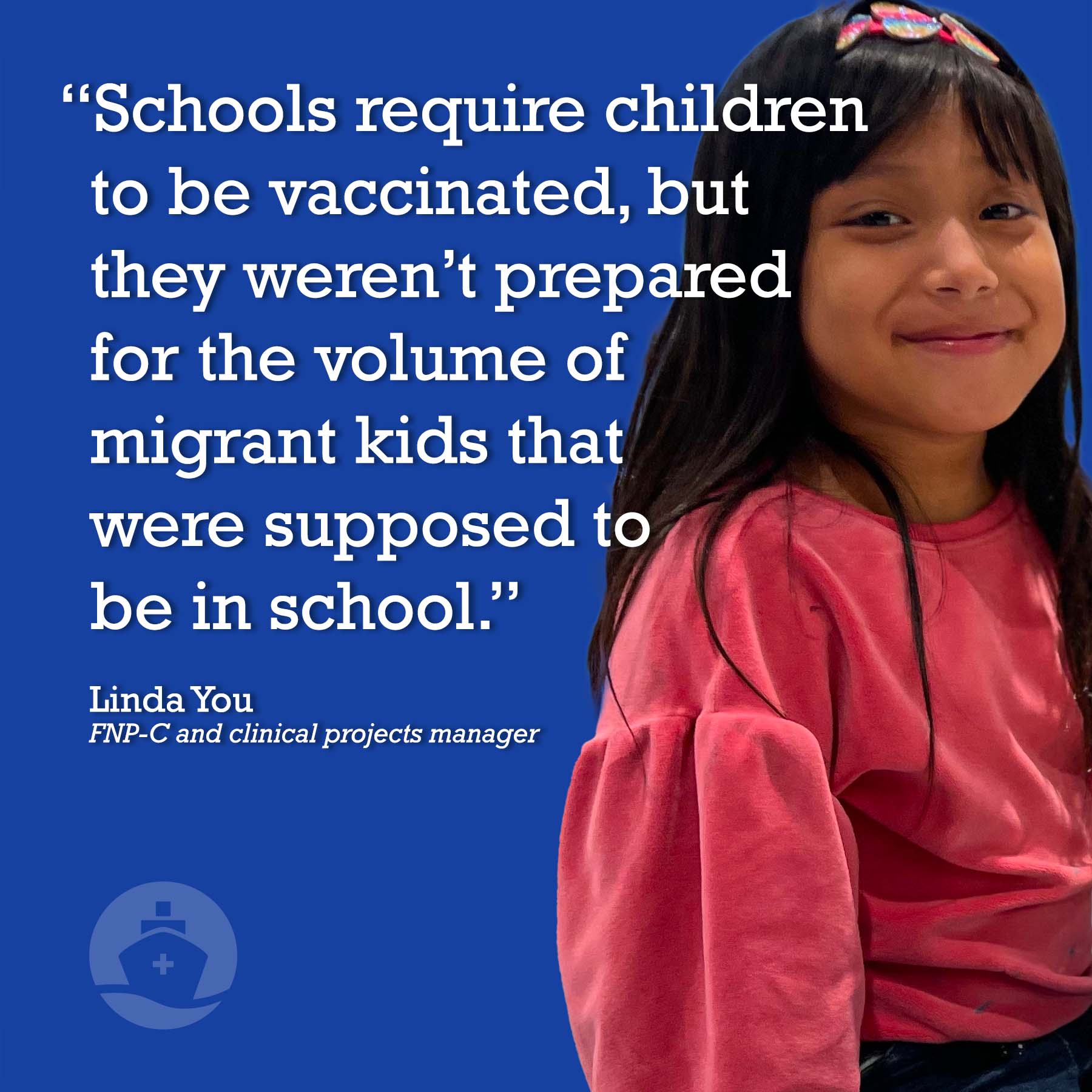
The solution: a targeted inoculation program for kids so they could attend school, and create a vaccine history and a protocol so they can stay in school. But, the problem: how to pay for it.
“Government money for vaccines simply cannot keep pace with current demand,” said Floating Hospital president Sean Granahan. Children are required to have a series of shots over multiple visits and The Floating Hospital receives limited reimbursement, depending on the child’s age and status, under the guidelines of the well child vaccine and other programs.
Citing these concerns, You and chief medical officer Shani Andre, MD, brought the idea to Granahan. Recognizing the urgency, he began searching for a grant to fill in the gaps.
Enter The New York Community Trust, the community foundation for New York City, Westchester, Suffolk and Nassau counties. The Trust, with an almost-100-year history, uses its permanent endowment made up from the legacies and wills of hundreds of New Yorkers, to ensure the downstate region remains vibrant and healthy place for all.
The Trust often focuses on the big picture of issues facing the region—such as treatment for substance abuse, education, food insecurity, services for children, older adults and the LGBTQ community. And it has a long history of being among the first to respond to a crisis. It was, for example, instrumental in providing emergency funds during the coronavirus pandemic (The Floating Hospital was one such recipient of a $100,000 grant to keep the clinic afloat at the height of the crisis).
“Our competitive grants mostly work toward systemic reforms and sector-wide efforts,” said Irfan Hasan, the Trust’s deputy vice president for grants. “Certainly, facilitating access to care is important but, we try to do it on a systemic level versus just with a single provider.”
When The Floating Hospital approached the Trust, Hasan saw a way to align the Trust’s funding priorities to address a challenge that was unplanned but literally on our front door. Timing was also of the essence, if work was to be done in time for the start of the school year. Granahan got on the phone and Care for the Homeless, a provider of healthcare at New York shelters for more than three decades (and a previous recipient of a Trust grant), stepped up to join The Floating Hospital in the endeavor.
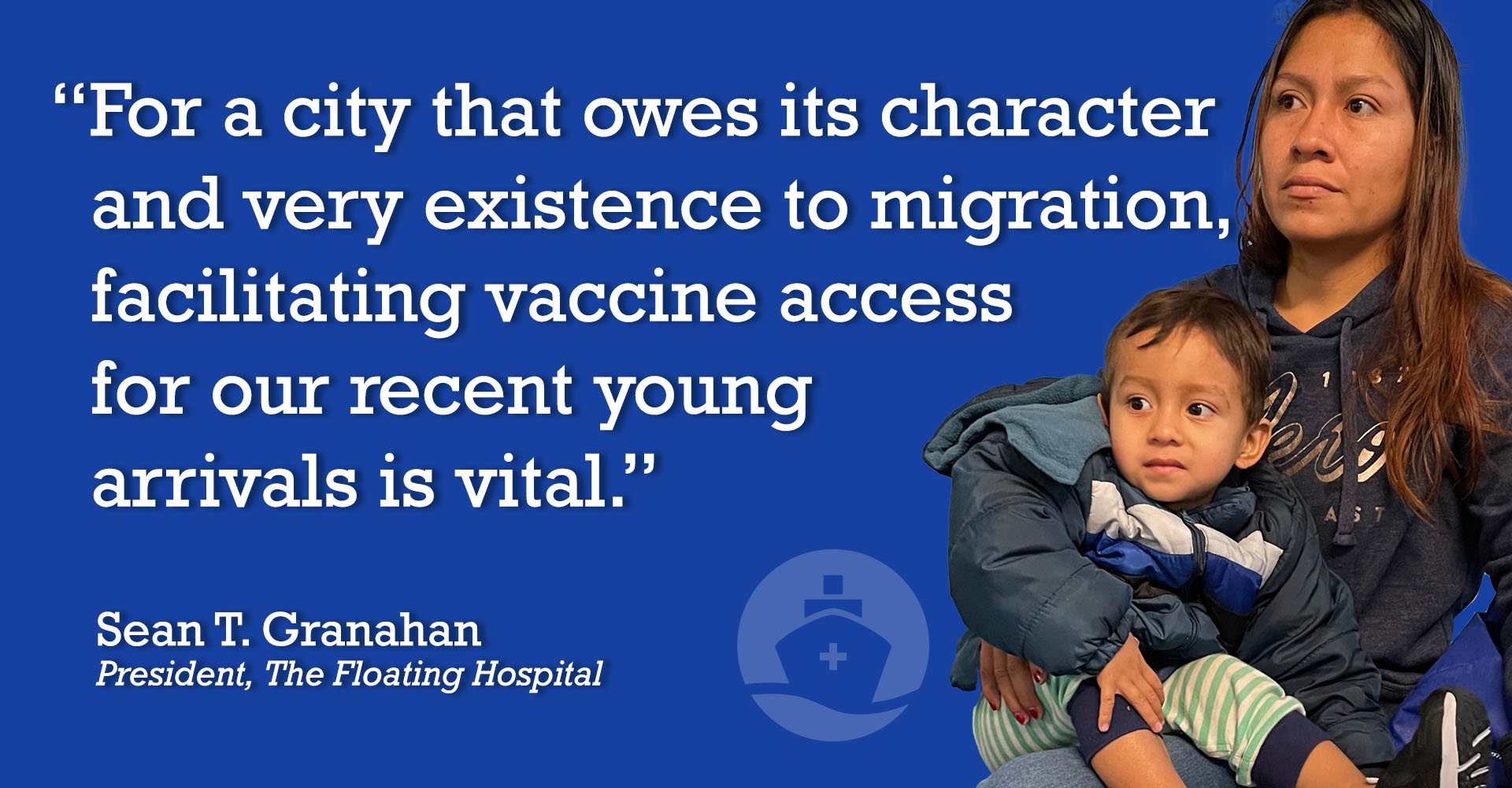
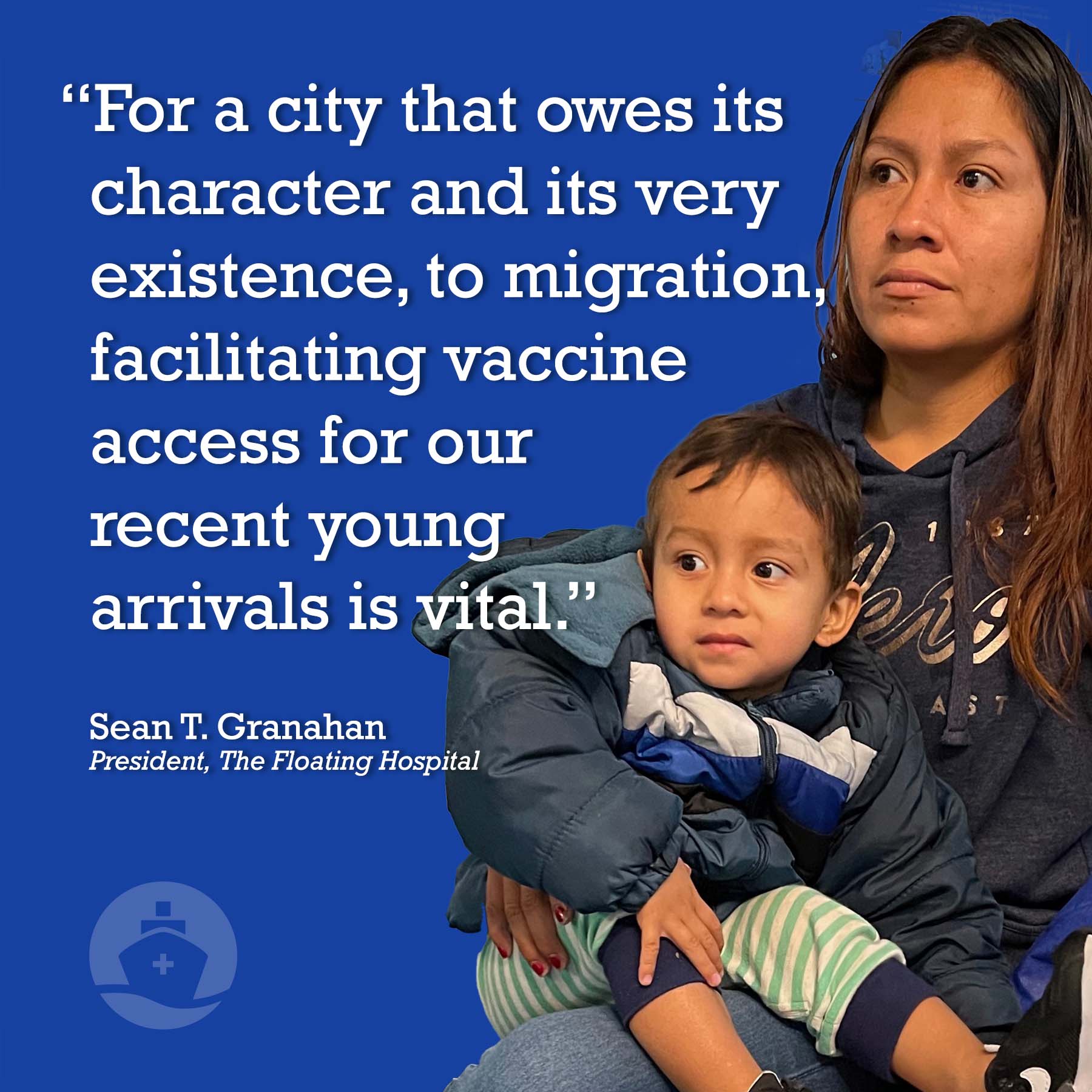
“Over 37 percent of our patients are uninsured and undocumented. Both we and The Floating Hospital want to help people in need who don’t have access to healthcare or have multiple barriers to getting healthcare,” said Cathy Sharp, Care for the Homeless director of development and communications.
And that was enough for Hasan to bring the proposal to the Trust’s board at its June meeting. The grant applications were prepared, processed, and approved in record time, said Hasan.
Each organization was awarded $150,000 for a year-long vaccination program targeted primarily at school-age children, but would also inoculate parents as needed. The program includes education about the importance of follow up and record keeping. Outreach, too, will be critical. Supportive agencies, family homeless shelters and other migrant accommodations will be blanketed with information about vaccine requirements, concentrating particularly on underserved neighborhoods in the Bronx, Brooklyn and Queens.
“For the Trust, these grants are a unique opportunity for us to do something that most other private funders just won’t step up to do quickly,” said Hasan. “We pride ourselves as being a community foundation that serves all New Yorkers. The several thousand new migrants are the newest of New Yorkers. Because they often arrive with literally nothing but the clothes on their back, helping them with the most basic of health care—being vaccinated against critical diseases—just makes sense. It also potentially heads off another serious public-health crisis. As we come out of the covid crisis, we certainly don’t want to be facing outbreaks of chickenpox, measles, or worse.”
Aside from the public-health implications, “Vaccinations pave the way to education, assimilation and community, widening the path to a better life for migrants, says Granahan. “A better life for migrants means a happier, more prosperous and culturally rich metropolis. For a city that owes its character and very existence to migration, facilitating vaccine access for our recent young arrivals is vital, and we’re looking forward to doing our part to see the project through.”
This post featured in our monthly newsletter from July 2023.
To get the latest from The Floating Hospital directly to your inbox, sign up using the form below.
Other posts from this newsletter:
Volunteers Anchor The Floating Hospital
Share This Story, Choose Your Platform!
Categories
Tags
The Floating Hospital provides high-quality healthcare to anyone who needs it regardless of race, ethnicity, religion, gender, immigration or insurance status, or the ability to pay. By providing unrestricted medical care in tandem with health education and social support to vulnerable New York City families, The Floating Hospital aims to ensure those most in need have the ability to thrive, not just survive.


